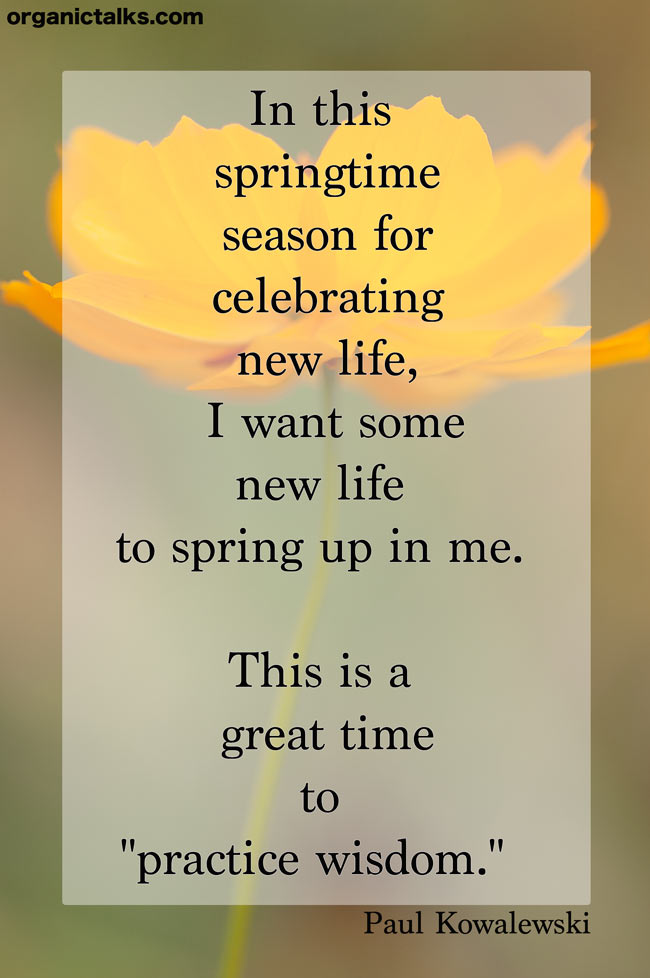Practicing Wisdom
Photo: Stanka Vukelić
Practicing Wisdom
by Paul Kowalewski
The word “spirituality” has become very popular. In fact, every day I come across articles about “spirituality” – on websites and in blogs, in books I read, or in newspapers. There is a great deal of interest in “spirituality” nowadays.
I have also noted that almost every single time I read something about “spirituality,” I also come across another word: “wisdom.” Somehow a spiritual path should lead a person to greater wisdom. A spiritual person is a wise person. Spiritual teachers are wisdom teachers.
While I fully agree that spirituality and wisdom go hand in hand, I have often wondered what that word “wisdom” really means.
At some intuitive level, I think I am able to recognize wisdom when I see it. For one thing, I know what “wisdom” is not. “Wisdom” is not the same thing as “intelligence.”
I know some really, really smart people who I would never think of as being “wise.” I also disagree with the belief that “wisdom comes with age.” I know plenty of older people who are rather mean-spirited and crotchety – a far cry from “wise.”
But when it comes to articulating what “wisdom” actually is, I start to falter a bit. That’s why an article I came across yesterday in the New York Times was so helpful and insightful to me.
Apparently, the concept of “wisdom” has now become a rather hot topic in scientific research. The article I read yesterday talked about some of that research and summarized what scientists and social scientists are saying about the characteristics of “wise” people.” Some of these qualities of wisdom include:
Wise people demonstrate a willingness to embrace failure along with success. No human being is perfect. Everyone makes mistakes. In fact, sometimes failure in life is often a great teacher.
Wise people are empathic. The gaze of their life is not focused only on “self” and personal gratification. Wise people try to see the world from the vantage point of others and are concerned about the needs of others.
Wise people are comfortable with ambiguity. They aren’t rigid in how they think or behave. They don’t see the world in “black and white.” Instead of thinking in terms of “either-or,” they think in terms of “both-and.”
Wise people live simply. They don’t necessarily shun comfort, but they don’t want nor do they desire excess.
Wise people are compassionate. They show others authentic kindness. They promote the welfare of others without expecting anything in return.
I have been reading and re-reading these few simple yet quite profound “characteristics of wisdom.” They have been so very helpful to me in articulating that which I previously could only grasp intuitively.
But more than helping me to get a better grasp on what “wisdom” is and what it means to be “wise.” I am now able to see that I can actually work at developing “wisdom. ” I can “practice wisdom” in my life as a spiritual discipline just like I “practice meditation ” every day.
Just because I’m older doesn’t guarantee that I am wiser. In this season of Lent, in this springtime season for celebrating new life, I want some new life to spring up in me. This is a great time to “practice wisdom.”
Please visit Paul’s blog The Desert Retreat House for more articles, and check out his book on Amazon: http://amzn.to/18IipCI
Let us know what you think by leaving a comment below, and don’t forget to follow us on Google+, Twitter, via RSS feed, or by simply subscribing to our newsletter at the end of this page!
organictalks.com



